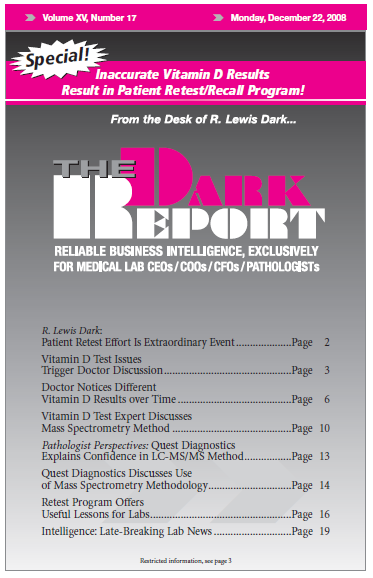ONE ASPECT IN THE DEBATE about the integrity of Vitamin D tests produced by liquid chromatography–tandem mass spectrometry (LC 0150MS/MS) is the discussion about how this method can produce results that are significantly higher than those produced by immunoassay-based methods. Quest Diagnostics addressed this point directly. In response to questions from THE DARK REPORT, Wael …
Quest Diagnostics Explains Confidence in LC-MS/MS Method Read More »
To access this post, you must purchase The Dark Report.


